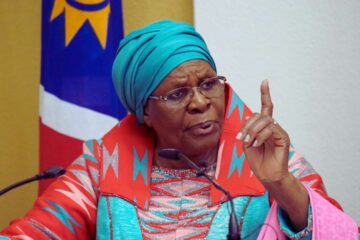Justicia Shipena
Companies will be monitored to ensure local content promises translate into real benefits, according to the Presidency’s Upstream Petroleum Unit.
The deputy head of the unit, Carlo McLeod, said all commitments must give Namibians a fair chance to participate.
This commitment comes as the government concluded nationwide consultations on the draft National Upstream Petroleum Local Content Policy.
The consultations, held from 1 to 17 September, engaged leaders and communities across all 14 regions.
Governors, councillors, traditional leaders, entrepreneurs, elders, and youth shared views in meetings from Lüderitz to Katima Mulilo.
Communities called for the petroleum industry to empower Namibians, reduce inequality, and create lasting opportunities.
In ||Karas, governor David Gertze and regional council chairperson Joseph Isaacs said disadvantaged groups, women, youth, and rural communities must be prioritised.
Hardap governor Brian McNab said oil resources represent a pivotal moment in Namibia’s history, while Kunene governor Vipuakuje Muharukua described the oil discoveries as both an opportunity and a responsibility.
Kavango East governor Hamunyera Hambyuka emphasised communication between government and communities.
Omaheke mayor Melba Tjozongoro highlighted skills development, and Otjozondjupa governor John ||Khamuseb proposed a National Conference on Mineral Resources.
Kavango West governor Verna Sinimbo spoke on youth scholarships, while Omusati governor Immanuel Shikongo stressed Namibian ownership.
In Erongo, councillor Olivia Andrews called for accountability.
Oshana governor Hofni Ipinge praised the inclusivity of the consultations, while leaders in Zambezi urged urgent action on youth unemployment.
Ohangwena governor Kadiva Hamutumwa said opportunities lie in training and foreign investment, while Oshikoto governor Sacky Kathindi encouraged young Namibians to prepare for petroleum careers.
Communities backed the policy framework, pointing to five priorities: fair distribution of benefits, capacity building for youth and SMEs, strong accountability, inclusivity, and environmental sustainability.
Head of the Upstream Petroleum Unit, Cornelia Shilunga, said the government will ensure petroleum wealth drives national development.
“This policy will serve as a cornerstone for national development, guaranteeing that our natural resources become a blessing for present and future generations,” she said.
Petroleum commissioner Maggy Shino added that oil wealth must bring visible improvements to local communities and households.
The presidency said contributions from the consultations will guide the final policy.
Once implemented, it will support jobs, training, and business opportunities while ensuring equitable benefits for all Namibians.
The cabinet approved the drafting of the policy in 2022, and the following year the mines and energy ministry began work to finalise the framework.
The draft policy aims to build a globally competitive sector, strengthen Namibian ownership, and expand financing and business opportunities across the value chain.
It places emphasis on skills transfer, technology adoption, and value creation through backward, sideways, and forward linkages.
The targets established in the sixth National Development Plan include increasing carried participation from 10% to 15% over the next five years, producing 150 million barrels of oil equivalent, boosting gas production to 130 million standard cubic feet per day, and creating 22,800 jobs by the year 2030.
Over the past three years, royalties from mining have contributed N$5.96 billion (US$309 million) to state revenue.




